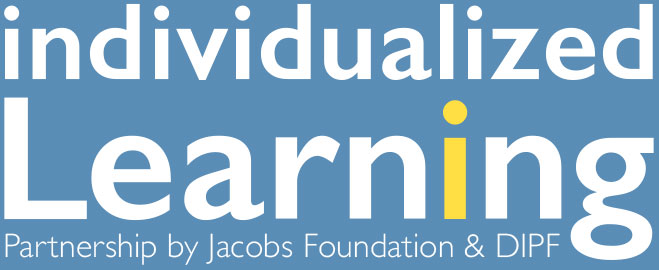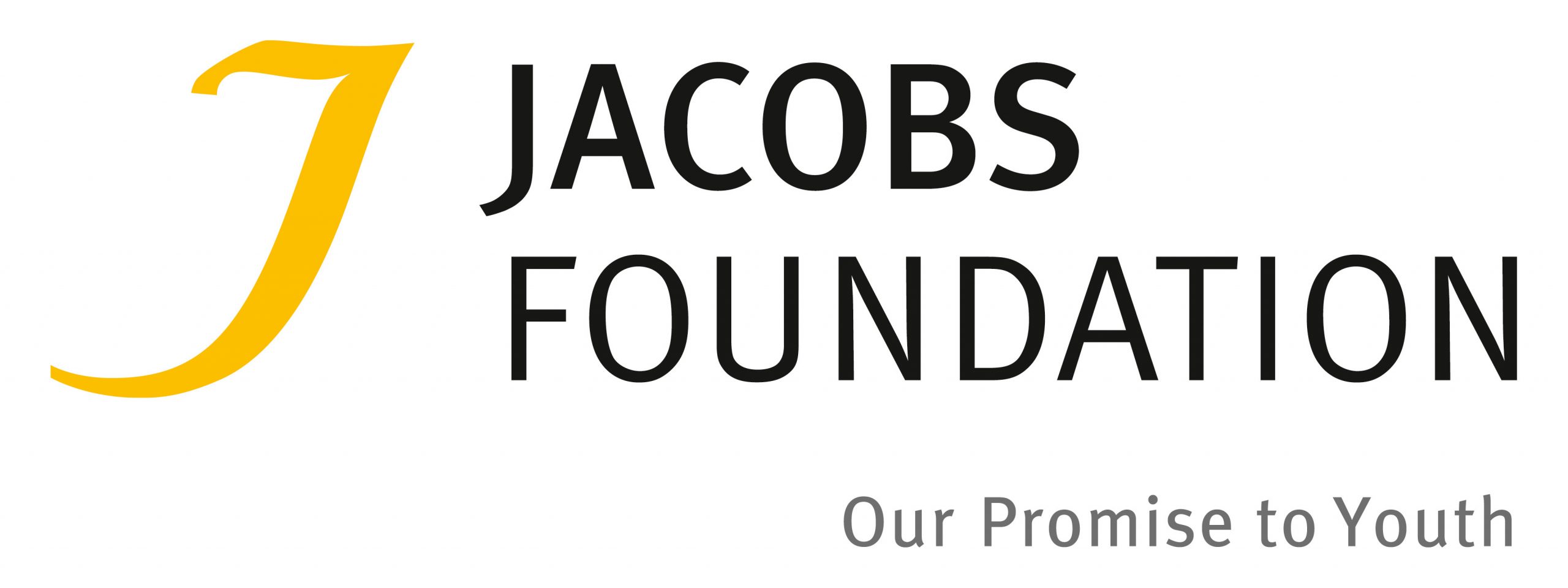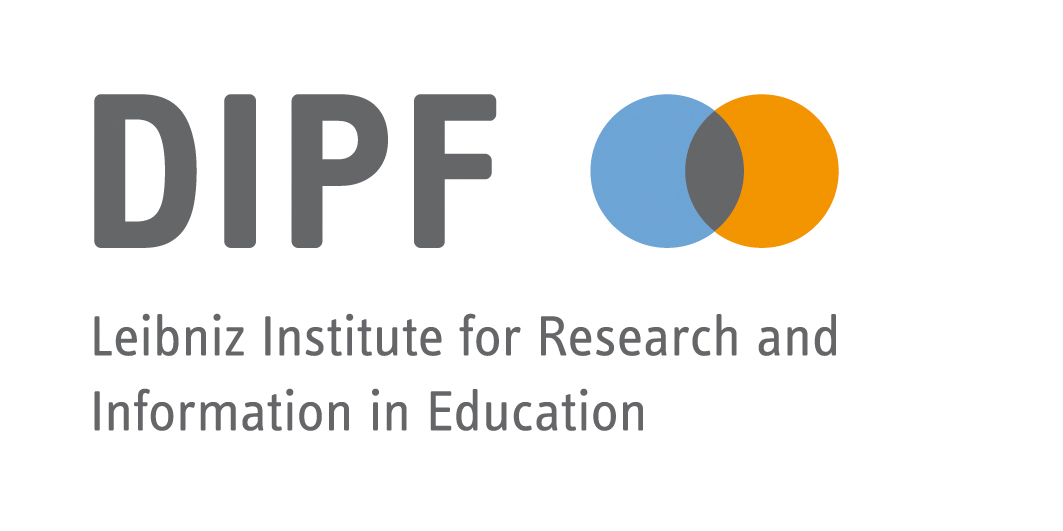Guest lecture by Dr. Logan Fiorella
The Individualized Interventions Lab hosted a hybrid guest lecture „Making Sense of Generative Learning Activities” by Dr. Logan Fiorella on 17 July at 11:00 a.m. in the room Wolfgang Mitter II (1st floor) and via Zoom.
SAW funding for the project "PROMPT 1.0 - A mobile intervention that improves children's self-regulated learning skills"
The Individualized Interventions Lab is delighted to have received comprehensive SAW funding for the project “PROMPT 1.0 – A mobile intervention that improves children’s self-regulated learning skills” as part of the Leibniz competition in the category: Leibniz Transfer. The aim of PROMT 1.0 is to develop and evaluate a mobile intervention that provides children with long-term, individualised support in the development and application of self-regulated learning skills. The project is being funded for three years with a total of 1 million euros.
Publication of a learning comic about self-organised learning
To illustrate the concept of self-organised learning for pupils, Solveig Gresselmeyer has created the learning comic “From learning grouch to learning ninja – a short guide to self-organised learning” in collaboration with the Individualized Interventions Lab. We are pleased to be able to share the publication in German language with you. This work is licensed under CC BY 4.0 DE.
New research on social media use
A new study by Andrea Irmer in the Cognitive Development Lab shows that the use of social media is linked to diminished well-being among children and adolescents. The DIPF researchers primarily investigated the question of how this link arises. The result: upward social comparisons play a central role. The results of the study were published in the scientific journal “Communications Psychology” with the title “Associations between youth’s daily social media use and well-being are mediated by upward comparisons“. The research has been featured as a research highlight in Nature Reviews Psychology.
Invitation to the guest lecture by Prof. Dr. Caren Walker
The “Individualized Interventions Lab” invites you to the guest lecture „What Shapes the Space of Possibilities that Children Consider?“ by Prof. Dr. Caren Walker on October 17th at 6pm via Zoom.
Friederike Blume appointed to Editorial Board of Learning and Instruction
Friederike Blume has been appointed to the Editorial Board of Learning and Inuctiostrn.
Election of Friederike Blume to the EUNETHYDIS Board of Directors
Our colleague Dr. Friederike Blume was elected to the board of EUNETHYDIS EUNETHYDIS (The EUropean NETwork for HYperkinetic DISorders) at the annual meeting in Montpellier. There, she will focus on the concerns and support of researchers in the early career phase. Congratulations!
Workshop “Mobile Interventions: Improving Children's Education and Well-Being With Mobile Technology“
From 06-07 July, the workshop organised by the Individualised Learning Working Group took place with national and international guests. For two days, about 30 high-ranking scientists from the fields of mobile health, child development and education exchanged ideas on how synergies can be created to advance research on mobile interventions for children. The workshop was supported by the DFG and the CERES Network (Connecting the EdTech Research Ecosystem).
Individualized Interventions Lab now Present on Instagram
The Individualized Interventions Lab around Garvin Brod is now also represented on the social network Instagram. On the new channel, there are insights into the work of the researchers and, for example, current information about opportunities to participate.
Development of the PROMPT Learning Plan App - Children Help Out
Self-regulated learning is often not easy for children. With the app PROMPT, researchers of the Individualized Interventions Lab of Garvin Brod are currently developing a digital aid – which has now been tested and evaluated by children. In an article for the DIPF blog, the study and the ideas of the participating children for improving the app are presented.
Study Launch: What Goals do Young Adults Pursue?
The ExTra project investigates what goals young adults pursue and what reasons they have for these goals. To do this, a team from the Intensive Longitudinal Data Lab queries young adults’ experience of everyday life using short questionnaires on their smartphones.
Searching for the Right Balance of Agency in EdTech
Successful learning strategies for children include both agency and an appropriate degree of external control. In a blog post for BOLD, Garvin Brod, together with Natalia Kucirkova, described how this balance between freedom and regulation can be shaped in the learning context of educational technologies (EdTech).
Interview with Maria Theobald on Test Anxiety in Psychologie Heute
For its current issue, the journal Psychologie Heute interviewed Maria Theobald (Individualized Interventions Lab). In the interview, she presents her research on test anxiety: Why a long-suspected thesis can be considered disproved, how procrastination and test anxiety are related, and which strategies can be helpful in combating it.
"Supporting Children with Inattention, Hyperactivity, and Impulsivity" – New Article by Friederike Blume
Together with Dieter Baeyens (University of Leuven), Friederike Blume (Cognitive Development Lab) has published an article about the needs of children attention-deficit/hyperactivity disorder. It also presents some measures how teachers can support affected children.
How Emotions Affect Learning - New Podcast Episode with Maria Thebobald
Various questions about the role of emotions in learning are answered by Maria Theobald from the Individualized Interventions Lab in a new edition of the DIPF podcast “Sitzenbleiben”.
ExTra on Insta: Study on young adults' goals presents itself on Instagram
What goals do young adults have – and why? With the ExTra study, researchers from the Intensive Longitudinal Data Lab want to gain new insights into this. Now they are also presenting their study via Instagram.
Economist presents study results
Test anxiety has no effect on exam performance – at least not beyond the level of knowledge identified in mock exams or in the preparation phase: The article by Maria Theobald, Jasmin Breitwieser and Garvin Brod, just published in the journal Psychological Science (online first), is reviewed in the current issue of The Economist (online behind the paywall).
Study launch: What goals do young adults pursue?
The ExTra project investigates what goals young adults pursue and what reasons they have for these goals. To do this, a team from the Intensive Longitudinal Data Lab queries young adults’ experience of everyday life using short questionnaires on their smartphones.
How to explain daily variations in student's success?
Friederike Blume, Andrea Irmer, and Florian Schmiedek – together with Judith Dirk – published an article in Developmental Science based on their analyses of intensive longitudinal data on daily self-regulation, working memory, and performance goal orientations in the school context of 9- to 11-year-olds.
DIPF Blog about PROMPT
The DIPF Blog presents the PROMPT project in a recent article (in German language): “First play soccer, then work on vocabulary – learning organization with app support.” Garvin Brod and Jasmin Breitwieser explain how self-discipline and organization of students can be strengthened and promoted with the help of the specially developed app PROMPT.
Guest Lecture Silvia Bunge: How does Reasoning Support Schooling – and Vice Versa?
On June 7, 2022, Silvia Bunge from the University of California Berkeley will be a guest at the DIPF in Frankfurt. Her lecture is entitled “How does Reasoning Support Schooling – and Vice Versa?” and will take place at 2 p.m. in the room “Wolfgang Mitter” at the DIPF | Leibniz Institute for Research and Information in Education in Frankfurt.
Basic Psychological Needs: Podcast with Andreas Neubauer
For a new episode of the DIPF podcast series, Andreas Neubauer (Intensive Longitudinal Data Lab) reported from his research on basic psychological needs. The educational researcher explains in the podcast conversation why it is so important that not only the physical needs for sleep or food but also the needs for social closeness or success are satisfied.
Study launch: What goals do young adults pursue?
The ExTra study investigates what goals young adults pursue and what reasons they have for these goals. To do this, a team from the Intensive Longitudinal Data Lab queries young adults’ experience of everyday life using short questionnaires on their smartphones.
"Reflecting on one's own teaching – strengthening teachers' competencies"
In four (German speaking) lectures and a theory-practice forum starting on May 4, experts from various fields of educational research and subject didactics will have their say. Using concrete examples, they will show how reflection processes can be initiated among teachers and made fruitful for teaching and school development.
Visit from France: Louis Bourgaux as a guest at Individualized Learning
Louis Bourgaux is a visiting researcher at the lab of Garvin Brod in Frankfurt for six months. Together with Garvin Brod and Jasmin Breitwieser he will work on the PREDICT project. Welcome, Louis!
New team member: Chimezie Amaefule new at Individualized Learning
We are happy to announce a new member in the Individualized Interventions Lab: Chimezie Amaefule comes from the University of Rostock and joins Garvin Brod‘s lab as a PostDoc. As part of the network “Connecting the EdTech Research EcoSystem” (CERES), he will work on the development of digital learning technologies. Welcome, Chimezie!
When prior knowledge helps with learning success: Garvin Brod explains research results in interview
Can observations in nature or at home help children understand physical concepts? In an article in “npj | Science of Learning”, Garvin Brod explains when and how prior knowledge can support students’ learning success. For the DIPF blog, he has summarized the central statements of his article.
"ADHD at school" – Friederike Blume as guest in podcast
In the current episode of the DIPF podcast, Friederike Blume (Cognitive Development Lab) reports on the current state of research on attention deficit hyperactivity disorder (ADHD), debunks established views and gives examples of how affected children and adolescents can be better supported through the use of self-regulation strategies.
Award for Andreas Neubauer
Andreas Neubauer‘s presentation titled “Starting Tertiary Education during the Covid-19 Pandemic: Emerging Adults’ Perceptions of Their Parents and Associations with Need Fulfillment and Well-Being” was awarded the Conference Theme Award.
He gave the presentation at the Society for the Study of Emerging Adulthood (SSEA) conference.
New Study on Vocabulary Learning via App: Is it Easier to Learn Digitally?
The PROMPT project team is developing a learning planner app to help children successfully use digital learning media such as apps. In the study, which is now beginning, the children will pass on their experiences in learning English vocabulary to the researchers via the app. This will help them better understand what is important for successful vocabulary learning – and make learning easier.
Florian Schmiedek appears in podcast
Do things go better and worse at school and with homework, depending on the day’s form? And if so, where do such ups and downs come from and how do you deal with them?
Florian Schmiedek talks about these and similar questions in a new episode of the DIPF podcast for parents.


